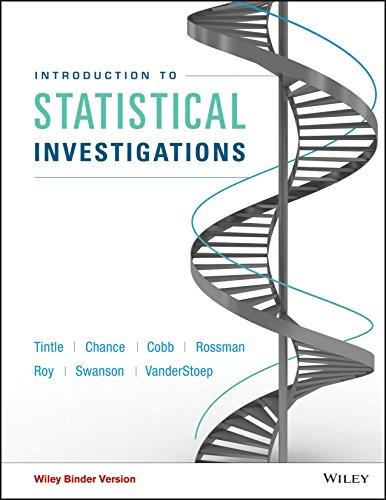Reconsider the previous two exercises. How, if at all, would your analysis and conclusions change if the
Question:
Data from previous exercise
Selvi et al. (2012) conducted a study on university medical students in Turkey to investigate whether and how sleep habits were associated with having nightmares. During the study, these students were engaged in lecture-based learning with no hospital duties. All participants were given initial surveys, the results of which were used to determine who among them had €œearly bird€ sleep habits and who €œnight owl€ habits. Next, the students were given the Van Dream Anxiety Scale (VDAS) assessment, which involved questions regarding nightmare frequency and dream anxiety due to frightening dreams during the last 30 days. Here are the summary statistics on nightmare frequency by €œearly bird€ and €œnight owl.€ Note that higher scores indicate higher nightmare frequency.

Analyze the data using a theory-based approach (use the Theory-based Inference applet) to determine whether early birds differ from night owls with respect to average nightmare frequency. Th e data are not strongly skewed within each group. Be sure to include the appropriate hypotheses, a statement about validity conditions, as well as numerical evidence (including p-value) in support of your conclusion with regard to the hypotheses. In your conclusion, include comments about statistical significance, estimation (95% confidence interval (include interpretation)), causation, and generalization.
Step by Step Answer:

Introduction To Statistical Investigations
ISBN: 9781118172148
1st Edition
Authors: Beth L.Chance, George W.Cobb, Allan J.Rossman Nathan Tintle, Todd Swanson Soma Roy





